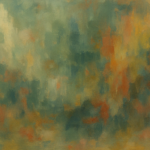Throughout my academic career I learned that medicine can be pursued through any major. Although the traditional path is through biology, as long as the correct prerequisites are taken, you are eligible to apply. As time went on, I began to think to myself, “Why isn’t there a common pre-med major?” This major would set students up to conquer the rigorous curriculum of medical school. Additionally, if students decide not to pursue medicine, they would obtain a bachelor’s in pre-medical studies which allows them to go on to pursue other careers in the medical field. The next question that we must ask is, “What would be the classes for this major?” The answer is based on another philosophical question: “Do we want physicians to be pillars of the community, or simply another job?” I propose the former.
In order to answer this preliminary question, we must look at etymology. The word “physician” comes from the ancient Greek word ἰατρός (iatros), which means “healer” or “doctor.” The term “doctor” comes from the Latin word “docere,” which means “to teach.” The intersection of a healer and a teacher is heavily tied to what it means to be a physician. Physicians are trusted members of the community who treat everyone. By interacting with people from all walks of life, they should be well versed in interacting with anyone. Being able to relate to the patient, and know even just one fact about their life instantly increases patient comfort, which leads to better medicine. If we want physicians to be pillars of the community, we must educate them as such.
The first two years of the pre-med major would simply be general education courses and science prerequisites:
- One year of biology + lab
- One year of general chemistry + lab
- One year of English
- One semester of psychology
- One semester of sociology
- Two years of foreign language
- One year of organic chemistry + lab
- One year of physics + lab
- One semester of calculus
- One semester of statistics
- One year of anthropology
- One semester of U.S. history
- One semester of humanities
The last two years would be preparation for the MCAT and medical school. Here is a sample schedule that was created using ChatGPT (major courses as well as sample general education courses are included):
4-year undergraduate plan: pre-health track
Year 1: Core sciences + gen ed breadth
- Fall semester
- General biology I + lab
- General chemistry I + lab
- Intro to psychology (gen ed + major)
- Foreign language I (global gen ed)
- Spring semester
- General biology II + lab
- General chemistry II + lab
- Intro to sociology (gen ed + major)
- Foreign language II
- Calculus I (quant gen ed)
Year 2: Core sciences + gen ed breadth
- Fall semester
- Organic chemistry I + lab
- Physics I + lab
- English composition I (gen ed)
- U.S. history or civics (gen ed)
- Foreign language III
- Spring semester
- Organic chemistry II + lab
- Physics II + lab
- English composition II (gen ed)
- Humanities elective (philosophy, art, etc.)
- Foreign language IV
Year 3: Upper division + test prep
- Fall semester
- Biochemistry
- Research course
- MCAT/DAT/GRE prep course
- Spring semester
- Upper-level science elective (e.g., genetics or cell bio)
- Research course
- Interview prep course
- MCAT/DAT/GRE self-study or practice exams
Year 4: Medical school preparation + finishing general education
- Fall semester
- Anatomy I
- Physiology I
- Bioethics or public health
- Intro to anthropology (soc sci gen ed)
- Global/diversity gen ed (e.g., world religions)
- Spring semester
- Anatomy II
- Physiology II
- Humanities elective (ethics, literature)
- Oral communications / speech (gen ed)
- Advanced writing (writing-intensive gen ed)
- Medical anthropology
- Medicine related elective
For the first three years, there is little variation as it is necessary to take the core science courses prior to either the MCAT, DAT, or GRE. The fourth year, however, has more flexibility.
I hope that universities adopt this major and curriculum as I believe it will be beneficial for medical students, and therefore, the general population.
Devin Behjatnia is a medical student.




















![AI censorship threatens the lifeline of caregiver support [PODCAST]](https://kevinmd.com/wp-content/uploads/Design-2-190x100.jpg)
